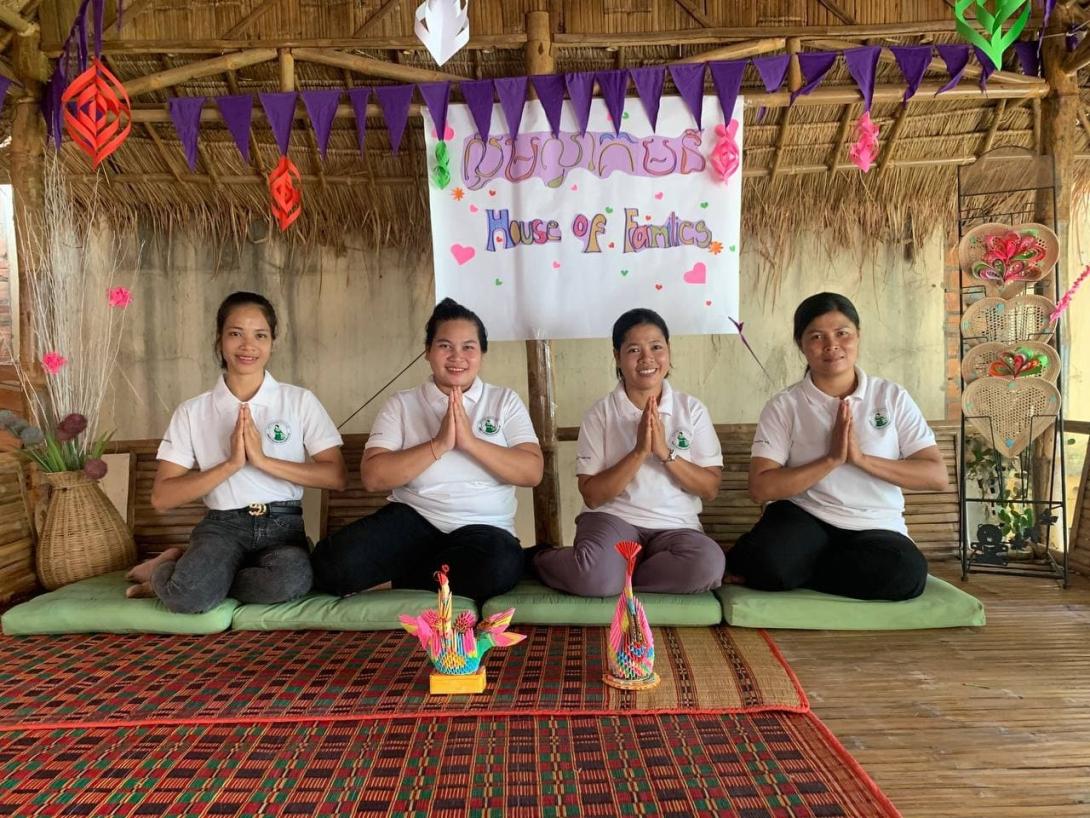
International Day of Families: support for vulnerable families in Cambodia and the Philippines
Established in 1993, the International Day of Families (May 15) aims to raise awareness about issues related to families and the social and economic issues that concern them. On this occasion, we wish to recall the fundamental role of the family in the development and the well-being of children.
Via Familiis: an international and innovative project to support families in Africa and Asia
Many families, due to a lack of financial, relational and educational resources, struggle to fulfill their parental role, leaving their children particularly vulnerable. Convinced of the key role of the family in the protection and development of children, the FAAI and its local partners in Africa (in Burkina Faso, DRC and Mali) and Asia (in Cambodia and the Philippines) are launching a new international project: "Via Familiis". The main objective is to promote the role of the family by enhancing the capacity to act of disadvantaged families, because the support of vulnerable children towards a sustainable (re)integration is inseparable from the support of their family circle.
Starting this year, our Asian partners, the Women's Resource Centre (WRC) based in Cambodia and the association Caméléon in the Philippines, are offering a space, created with and for the families they support: the family house. These houses are meeting places open to families and parents with the aim of helping them break out of their isolation and strengthen their capacity to act and their educational practices. The houses help recreate a circle of sociability and solidarity in the community where parents can meet, share their experiences and provide support to other parents in similar situations.
These places are run by our partners' teams as well as by the families themselves, who participate and organize workshops according to their needs. This horizontal management aims to restore confidence to parents and enables the teams to offer support adapted to the needs expressed by the users. Thus, each family house offers activities specifically related to the needs, social and cultural context.
The family house in Iloilo, Philippines
In the Philippines, the association Caméléon has been accompanying disadvantaged families in Iloilo for many years. On the island of Panay, a large number of families face financial, social and emotional insecurity, which often leads to their children dropping out of school, and to early marriages and pregnancies. The issues of intra-family violence are widespread on the island.
From the beginning of the project, the families were involved in the design and construction of the house, allowing them to take ownership of the space and create work opportunities for family members seeking employment.
This close collaboration with families has allowed Caméléon's teams to connect, support and consult them so that the space and activities respond to their needs. A process that Isaiah Cabenero, Community Development Officer, tells us about, "We are happy to share our progress, some of the early challenges we faced, and especially the joys of working with families in the community. We are confident that we will all end up proud and fulfilled."
When it opens, scheduled for June, the house will offer a gardening space, parent-child activities, and workshops to discuss and raise awareness about children's rights, women's rights, and tolerance.
The family house in Siem Reap, Cambodia
In Cambodia, the association Women's Resource Centre (WRC) intervenes in the underprivileged areas of Siem Reap and support vulnerable families. Located close to the Angkor temples, Siem Reap is a tourist destination where families live from precarious work in tourism or agriculture. Domestic violence and mothers’ financial dependency are at the heart of WRC's work.
Through the family house, our partner aims to work on the one hand on issues of independence of women and to offer them psychosocial support. On the other hand, WRC works on intra-family issues by conducting counseling sessions with the fathers of families.
If the house is ready to welcome families, the current health crisis and the complete lockdown in place in Cambodia do not allow for the moment to carry out the planned activities. The families of Siem Reap are particularly vulnerable, as their income depends mainly on the tourist activity, which has been at a standstill since the beginning of the pandemic. To mitigate this situation, WRC teams are distributing solidarity baskets and following up weekly with families by phone.
In the current health crisis, it is more necessary than ever to support the most vulnerable families to enable them to parent and protect their children!